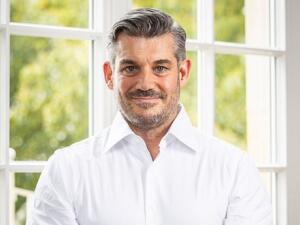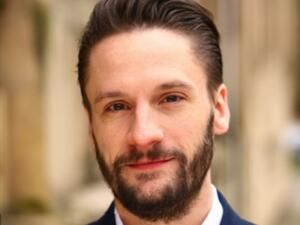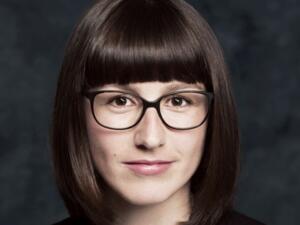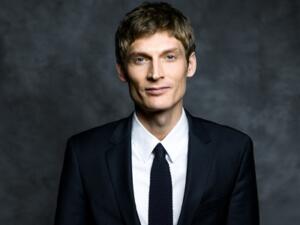Munich hears first ever case over licences for generative AI in GEMA vs OpenAI
It is reportedly the first lawsuit worldwide against an AI provider for the unlicensed use of protected musical works. Today, Munich Regional Court is hearing the case filed by collecting society GEMA against OpenAI. The question of whether the ChatGPT provider is unlawfully using artists' data is not just about copyrights, but also about the technology used to train the AI. JUVE Patent is attending the hearing.
29 September 2025 by Mathieu Klos
For once, patents are not infringed in this dispute, but rather the copyrights of music creators such as Kristina Bach, Rolf Zuckowski, Reinhard Mey, Inga Humpe, Tommi Eckart, Ulf Sommer, and Peter Plate. According to GEMA, they and their music publishers are supporting a lawsuit by the German collecting society against OpenAI. According to a press release on the filing of the lawsuit in November 2024, ChatGPT demonstrably utilised their song lyrics without remuneration.
Ten months later, they are once again in the public spotlight, as the 42nd Civil Chamber of the Regional Court Munich under presiding judge Elke Schwager hears GEMA’s lawsuit against OpenAI. GEMA primarily commercialises the copyrights of composers, lyricists and music publishers. OpenAI operates the AI application ChatGPT.
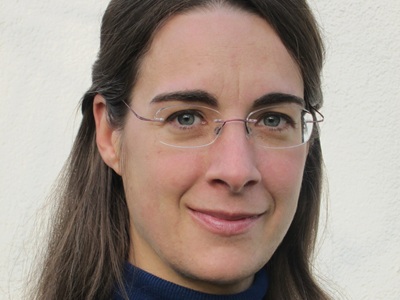
Elke Schwager
GEMA accuses OpenAI of training its systems with copyrighted musical works without acquiring a licence (case ID: 42 O 14139/24). Specifically, the case concerns the unauthorised reproduction of song lyrics via ChatGPT. According to the collecting society, the AI-supported language system was also trained with copyrighted texts from the repertoire of approximately 95,000 GEMA members without financial compensation. “When entering simple prompts, the chatbot reproduces the original lyrics of the songs with which the system has obviously been trained,” accuses GEMA.
“While other internet services pay licence fees to the authors for the use of the texts, OpenAI systematically makes use of the authors’ content, deliberately accepting copyright infringements. Fair remuneration is thus circumvented,” states a GEMA press release. GEMA aims to prove this systematic approach in the proceedings.
Fundamental themes
OpenAI does not accept this accusation and has called in the German team from Quinn Emanuel Urquhart & Sullivan. The litigation specialists led by lead partner Marcus Grosch, who usually litigates in patent disputes, will defend against GEMA’s licence claims.
It is expected that OpenAI will not only rely on copyright arguments today, but that there will also be technical details to discuss. OpenAI will probably argue that there is no reproduction of the songs in the generative AI model. A recurring argument in public discussions is that the training data sets containing the works are not physically stored in the model as a data set for targeted reproduction – unlike, for example, on a CD-ROM.

Munich Regional Court
The core of today’s discussion will therefore likely focus on the application of Section 16 I and II of German copyright law to generative AIs such as ChatGPT. In order to avoid licence fees to Gema, OpenAI will probably argue that it fulfils its duties of care and traffic obligations through a variety of measures that prevent copyright infringements.
Furthermore, another key discussion point will likely be whether the provider of generative AI or its user is ultimately the manufacturer of the end product. This means that numerous fundamental questions are up for discussion today in Courtroom 134.
Experienced Quinn Emanuel team
The German Quinn Emanuel teamhas a reputation for litigating in patent disputes for tech giants such as Google, Qualcomm and Netflix. But the practice is much broader. Antitrust disputes are now just as much a part of the offering as general civil court litigation.
The German practice follows the general approach of the firm, which describes itself as trial lawyers. Grosch and his team prefer to utilise both their litigation experience and their technical expertise in large-volume proceedings for international corporates. The best-known example is the defence of Mercedes-Benz against customer lawsuits concerning the manipulation of exhaust emissions values in diesel cars.
In addition to Grosch, counsel Felix Trumpke, Tina Liebscher and Carsten Ritter, as well as Mario Urbiks, Nina Balta, Mark Weiand, and Johannes Blöcher are part of the team in today’s proceedings for OpenAI.
- Marcus Grosch
- Felix Trumpke
- Tina Liebscher
GEMA goes after Suno AI
Suno AI is now also facing a similar lawsuit from GEMA, but the Munich Regional Court has not yet set a date for the hearing. Since January 2025, Suno AI has faced allegations that the pieces of music generated by AI are sometimes so similar to well-known songs that the copyrights of the authors of the original works are infringed. The plaintiff cites songs by Alphaville (Forever Young), Kristina Bach (Atemlos), Lou Bega (Mambo No. 5), Frank Farian (Daddy Cool) and Modern Talking (Cheri Cheri Lady) as examples. These artists were particularly successful with these songs in the 1980s and 1990s.
If GEMA has its way, a future licence model will be based on two pillars. Firstly, authors should share in all the economic benefits of AI providers and receive a third of the revenue as standard remuneration. In cases where no or only minor economic benefits are realised, at least a minimum remuneration would be due. Secondly, a share “at least to the same extent as would have been the case for purely human-created works” would be payable for subsequent uses.
Raue and GEMA
GEMA is relying on the support of Berlin IP law firm Raue in both proceedings. The firm has a high profile in Germany for its media and publishing law expertise. Partner Robert Heine leads the case and regularly assists collecting societies such as Corint Media, Gesellschaft zur Verwertung von Leistungsschutzrechten (GVL) and VG Musikedition, alongside GEMA. Within the firm, Heine also leads on matters relating to the use of artificial intelligence in legal work. Media lawyers Felix Laurin Stang and Lisa Schopp support him.
- Robert Heine
- Lisa Schopp
- Felix Laurin Stang
GEMA’s head of legal, Kai Welp, will also attend court today.
The court and the proceedings will draw significant public and media attention. According to GEMA, this is the first lawsuit of its kind by a collecting society worldwide.
For the Civil Chamber, today marks one of its most significant hearings since its establishment in 2020. Presiding judge Elke Schwager will sit with judges Anna Mattes and Hahn. The chamber regularly handles licence claims against major internet companies. In 2024, it ruled that video platform TikTok could not use copyrighted film sequences without payment. Nikita Ventures was the plaintiff in that case.
JUVE Patent does not yet know which law firm is representing Suno AI. (Co-author: Norbert Plützer)
